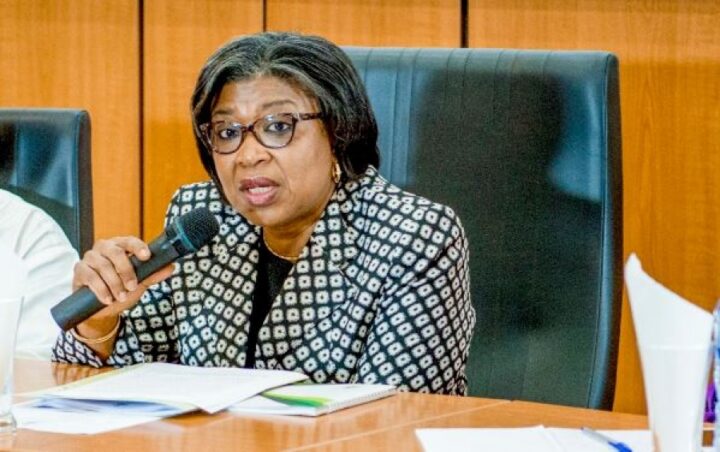The Debt Management Office (DMO) has predicted that the country’s debt will increase dramatically before the end of President Muhammadu Buhari’s administration.

According to DMO, the incoming administration will inherit approximately N77 trillion in debt when President Muhammadu Buhari’s tenure ends in May of next year.
The Director General of the Debt Management Office (DMO), Patience Oniha, disclosed this yesterday in Abuja while fielding questions from journalists at the public presentation and breakdown of the highlights of the 2023 Appropriation Act.
Buhari signed the N21.83 trillion 2023 budget into law on Tuesday, with an N11.34 trillion deficit.
The deficit is equivalent to 5.03 per cent of the country’s GDP (GDP).
Zainab Ahmed, minister of finance, budget and national planning, said the federal government would finance the deficit by borrowing.
Concerning the funding sources for the N11.34 trillion 2023 budget deficit, the minister stated that 22% of projected revenues will come from oil-related sources, while 78% will come from non-oil sources.
According to Ahmed, N7.04 trillion would be borrowed from domestic sources, N1.76 trillion from foreign sources, N1.77 billion from multilateral and bilateral loan drawdowns, and N206.18 billion from privatization to proceed to fund the deficit.
Meanwhile, the federal government borrowed N6.3 trillion from the Central Bank of Nigeria (CBN) in the first 10 months of 2022 through ways and means.
Ways and Means is a loan facility that the CBN uses to finance the government’s budget deficits.
The federal government announced in October 2022 that it will repay the N20 trillion debt owed to the Central Bank of Nigeria (CBN) with securities such as treasury bills and bond issuance.
However, during the budget presentation, Oniha stated that the federal government’s decision to securitize the central bank’s loans (ways and means) would increase the debt to around N77 trillion.
Despite DMO data putting Nigeria’s public debt at N44.06 trillion as of the third quarter of 2022, the federal government intends to borrow more to fund both the supplementary and 2023 budgets.
“There are a lot of discussions on the ways and means. In addition to the significant cost saving in loan service we would get by securitising it, there is an element of transparency in the sense that it is now reflected in the public debt stock,” she said.
“Once it is passed by the national assembly, it means we will be seeing that figure included in the public debt. You will see a significant increase in public debt to N77 trillion.
“The other area of the debt stock we are trying to highlight is to say the debt stock is also growing from the issuance of promissory notes, which are not true borrowing as such by the government. “
Comments are closed.